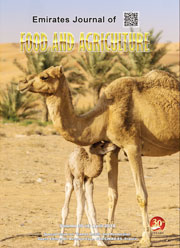Evaluation of cytogenotoxic effect of potassium acetate on Allium cepa L. root tips
DOI:
https://doi.org/10.9755/ejfa.2023.3129Abstract
Potassium acetate is a food additive used for preserving and regulating acidity (buffering agent) of processed food. The continuous use of food additives in our various foodstuffs made it necessary to test their possible toxicity. This research aims to test the cytogenotoxic effects of the food additive potassium acetate (E261) by using Allium cepa test system. The parameters tested were: root length, root number, mitotic index, and mitotic abnormalities. The concentrations of potassium acetate were: 0,00% (control), 0,05%, 0,10%, 0.15%, 0,20%, and 0,25%. The onions were incubated in different concentrations of potassium acetate for 72 hours. The roots were then taken and spread on a microscopic slide by squash method. The results showed that the tested food additive had a positive effect on root length, root number, and mitotic index at 0.05%. However, it had mitodepressive effect at higher concentrations and also decreased root length and root number as compared to the control. Total mitotic abnormalities increased with increasing the food additive concentration. The different mitotic abnormalities observed were laggard chromosomes, C-mitosis, multipolar anaphase, sticky metaphase, binucleate, sticky anaphase, and micronuclei. The highest effect of the test material was observed at 0.25% potassium acetate. These results suggest that this food additive is mutagenic and can be harmful if used in high concentrations in food.
Keywords: Food additive, Meristematic cells, Mitotic index, Abnormalities
Downloads
Published
How to Cite
Issue
Section

This work is licensed under a Creative Commons Attribution-NonCommercial 4.0 International License.










 .
. 